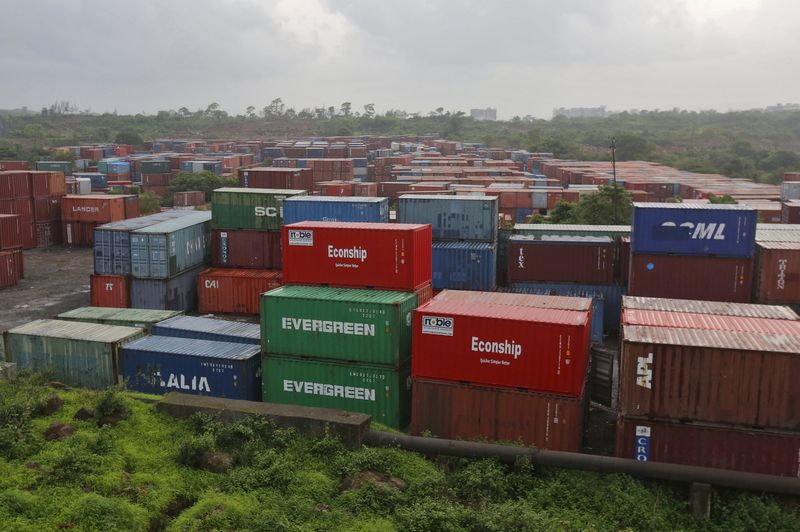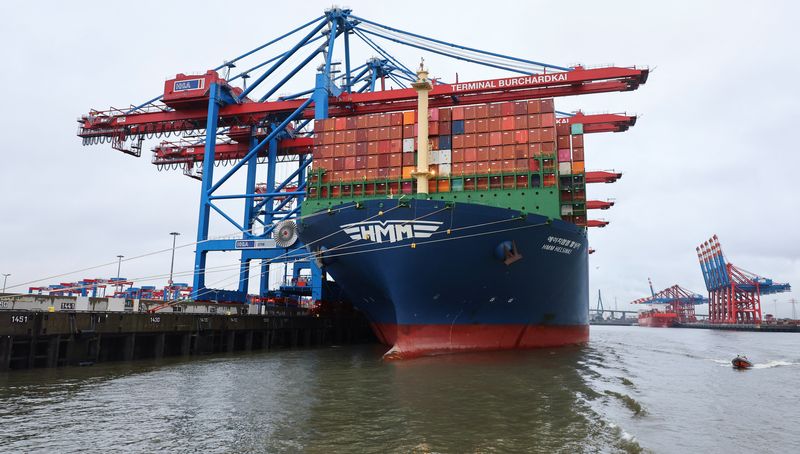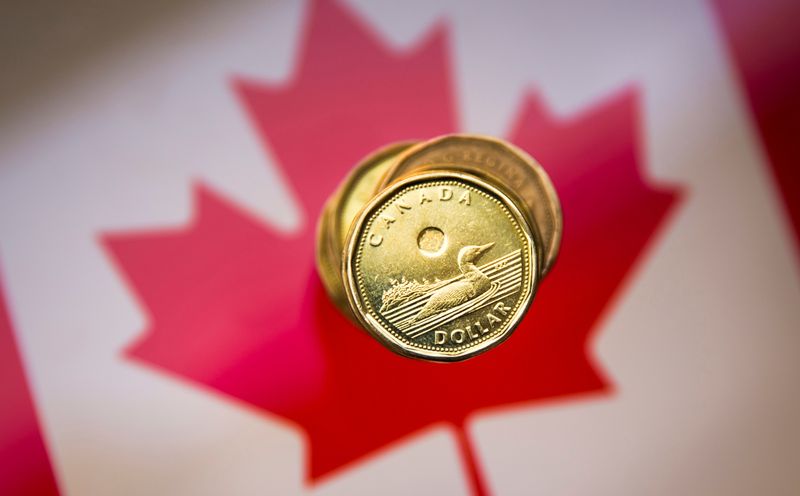By Manoj Kumar and Shivangi Acharya
NEW DELHI (Reuters) -India’s merchandise trade deficit in November widened to a record level, led by a surge in gold imports, while exports fell due to weaker global demand.
The merchandise trade deficit in November stood at $37.84 billion, data released by the commerce ministry showed on Monday, much higher than economists’ forecast of $23.9 billion, according to a Reuters poll.
The deficit stood at $27.14 billion in October.
The bigger trade gap will widen India’s current account deficit and add to the pressure on the rupee, which closed at a record low on Monday.
India’s merchandise exports in November fell 4.9% year-on-year to $32.11 billion, while imports surged by over 27% to $69.95 billion, data showed.
Inbound shipments of gold climbed to a record high of $14.8 billion last month, more than doubling from $7.13 billion in October, data showed, as the fall in global gold prices in November prompted many importers to ramp up inventories to meet rising demand.
“Gold imports have been a major culprit in the overshoot of trade deficit, having seen nearly 50% increase year-to-date vs last year,” said Madhavi Arora, chief economist at Emkay Global Financial Services.
Both the consumption and investment demand for gold have increased, while the global price of gold has also risen materially this year versus 2023, Arora said.
Trade ministry officials said a cut in the import tariff from 15% to 6% in July earlier this year, festival and wedding demand, coupled with higher returns on gold investments are behind the increase in demand.
In total, merchandise and services exports were estimated at $67.79 billion in November, and imports at $87.63 billion, against $73.21 billion exports and $83.33 billion imports, respectively, in the month before.
FALL IN GOODS EXPORTS
India’s merchandise exports also fell sequentially from $39.2 billion in October.
“The merchandise exports have taken a hit mainly due to a fall in global crude prices,” Sunil Barthwal, India’s commerce secretary, told reporters, while releasing the trade figures.
India imports crude oil while exporting petroleum products.
While crude oil imports in November rose 7.9% year-on-year to $16.1 billion, driven by domestic demand, export of petroleum products fell nearly 50% to $3.7 billion, data showed.
Barthwal said despite the fall in merchandise exports, the outlook for non-petroleum exports and services remains positive for the next four months, with total exports seen at over $800 billion in the current fiscal year ending in March 2025.

India’s total exports touched $776.68 billion last fiscal year, according to government estimates, almost at the same level as a year ago.
“We are focusing on 20 countries where the export potential is very high this year and next year,” Barthwal said, adding that six manufacturing sectors have been identified for export promotion along with six services with higher potential.








